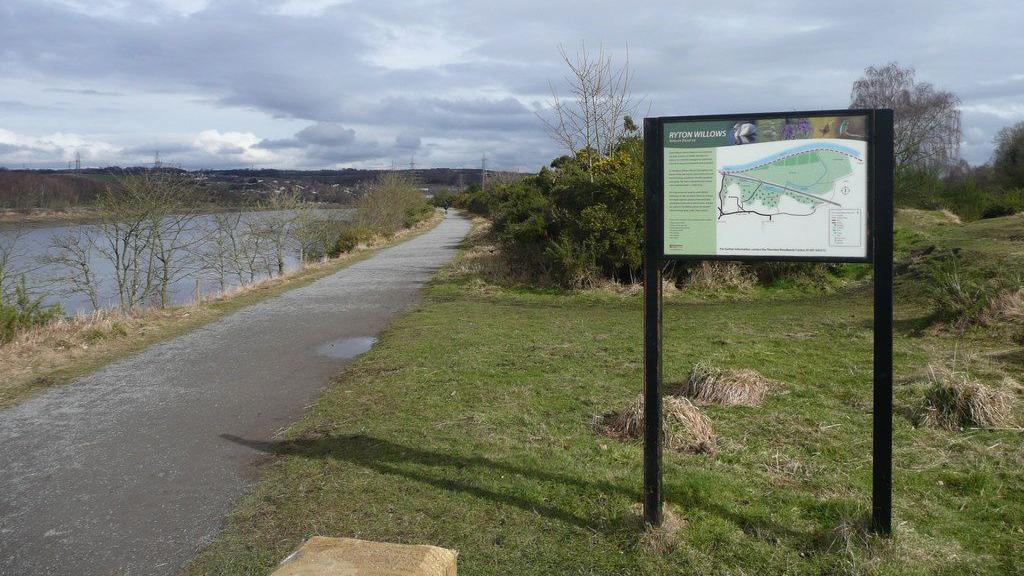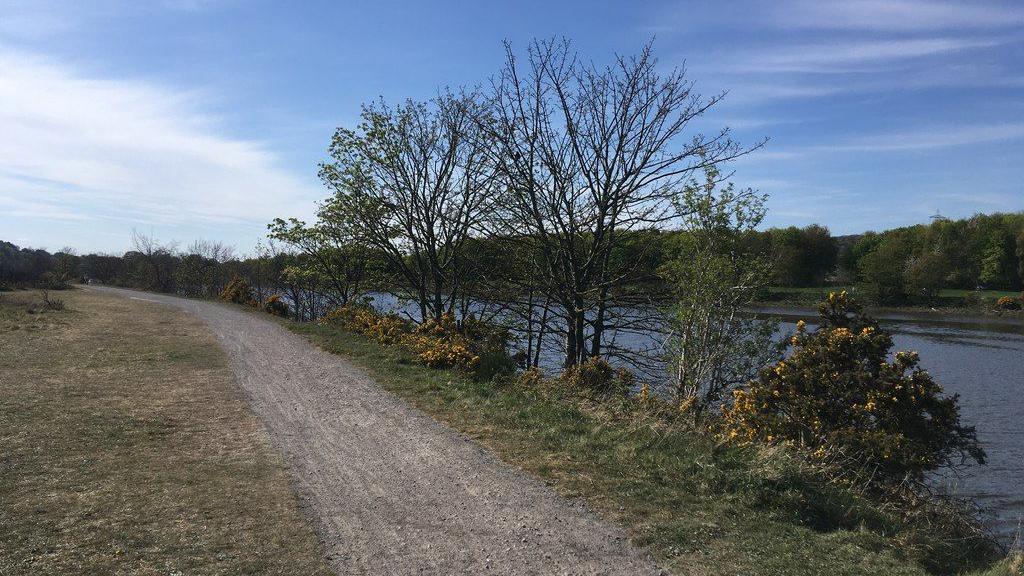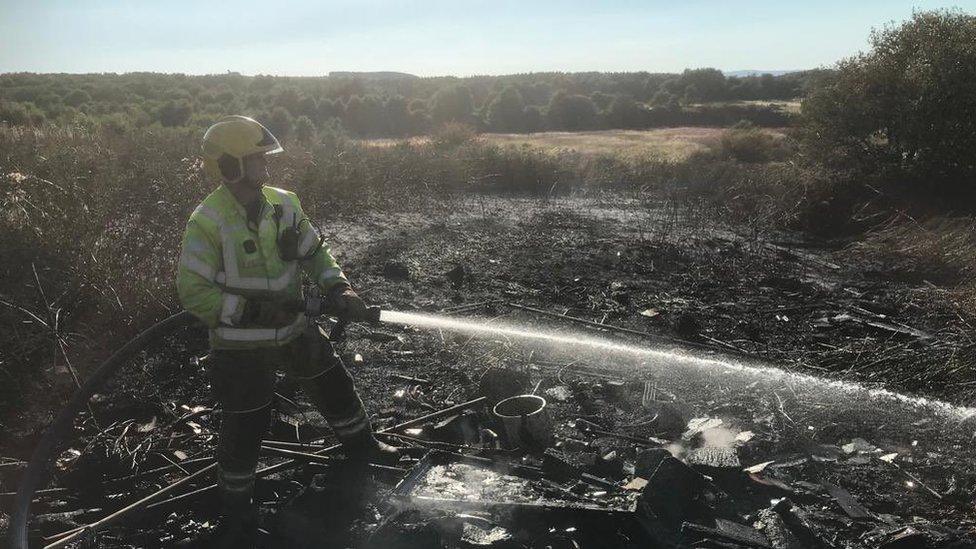Degraded nature reserve to be restored

Three options have been put forward to improve habitats at Ryton Willows nature reserve
- Published
Degraded habitats at a nature reserve are to be restored to boost the diversity of its wildlife.
Salt marshes and mudflats once ran along the River Tyne at Ryton Willows but these habitats have been shrunk over the years due to the industrialisation of the estuary.
Residents have been asked for their views on three potential projects designed by Groundwork NE and Cumbria, a charity which helps communities manage their green spaces.
Hellen Hornby, from Groundwork, said the plans had been designed to "mitigate against habitat loss" while keeping the green space available to the public.
Ms Hornby said much of the river has been dredged, canalised and its banks hardened to the detriment of its mudflats and salt marshes.
The Tyne's salt marshes were once used by fish as nurseries to raise their young but these areas are currently "squeezed into a very small margin", she added.

Salt marshes and mudflats along the River Tyne have shrunk over the years but could be restored under one of the plans
The three potential restoration projects have been shortlisted from 10.
The first would see a wider shoreline created along the riverbank to improve "habitat and species diversity".
However, Groundwork said this option could potentially increase the erosion of the bank and would require the Keelman's Way path to be moved further inshore.
The second option would see a small bay created in The Willows, which would restore tidal flooding to the area.
The bay aims to improve water quality but would require a pedestrian bridge to be built as part of the Keelman's Way.
The third option would involve a water pipe being dug up and replaced with a 300m (984ft) water course, which would create a new "water dependent habitat".
However, Groundwork said this would also involve building a new bridge and the removal of the pipe would be expensive.
A drop-in event is being held on 21 November at Ryton Methodist Church for those wishing to comment.
Follow BBC North East on X, external, Facebook, external, Nextdoor and Instagram, external. Send your story ideas to northeastandcumbria@bbc.co.uk.
More stories from BBC North East and Cumbria
- Published10 August 2022
